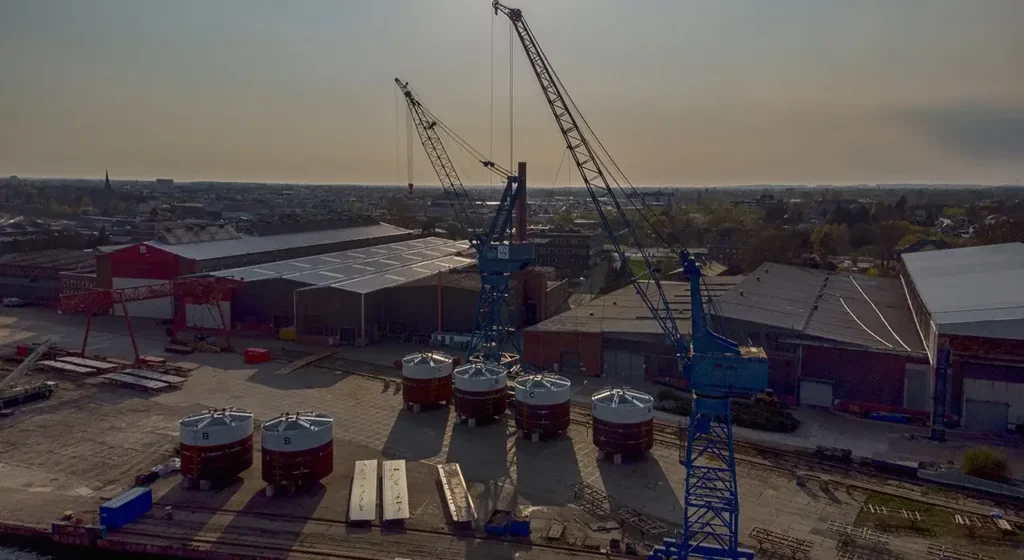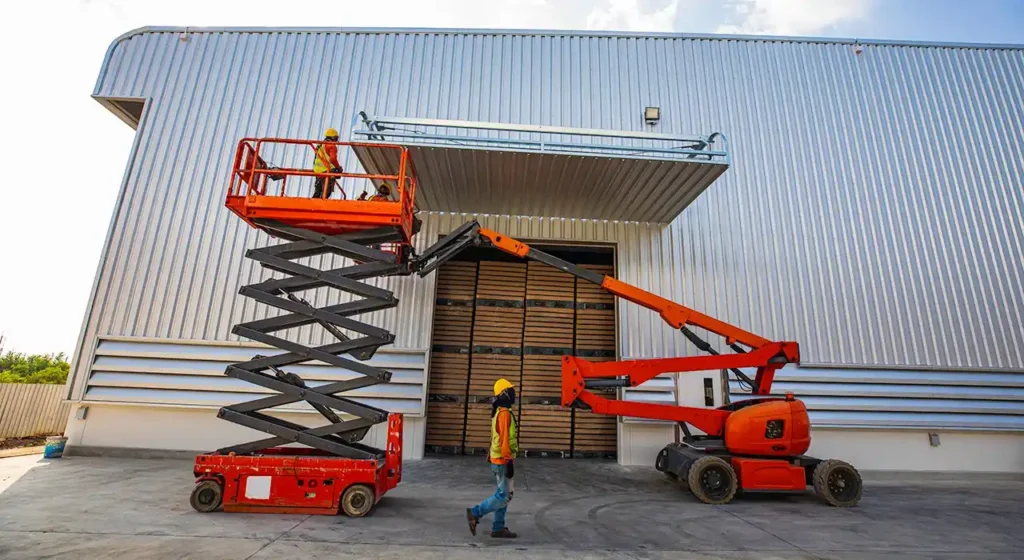Modular & Prefabricated Solutions
The overall demand for prefabricated modular structures is rapidly increasing as industries, along with communities, seek faster, more reliable, and cost-effective construction methods. At Civoool, we specialize in modular construction solutions that are easy to manage, quick to assemble, flexible for diversified needs, and very cost-effective.

Prefabricated Homes
Contemporary housing solutions must stabilize itself in speed, cost effectiveness, accessibility, and sustainability, which is where prefabricated homes shine. Designed as modular homes along with affordable prefab houses, these structures are well-suited for both temporary and permanent utilization, serving families, working staff members, and communities with adaptable living arrangements. Whether or not suited for quick build homes, temporary housing units, or even prefab residential units, the portable design ensures minimal disturbance, along with increased effectiveness. By offering energy-efficient prefab homes along with eco-friendly prefab houses, Civoool aligns with the increased requirement for sustainable housing solutions. Starting from prefabricated family homes towards residential prefab cabins along with prefabricated villas, our solutions bring luxury, ease, and reliability, gathering at the same time, minimizing the overall construction spans and expenses.

Site Offices
Efficiency at construction and industrial sites mainly relies on accessibility, permanence, and flexibility in office spaces. Civoool delivers modular site offices that are mainly designed for speed and adaptability. These consist of portable site offices, prefabricated office cabinets, and temporary office structures, enabling industries to develop working operations swiftly at any location. Our modular office solutions, along with prefab office buildings, combine contemporary designs for productivity. At the same time, site office containers, along with mobile prefab offices, bring modularity and flexibility. Starting from construction site offices towards prefabricated site cabins, our major offerings are well-trusted for dependability and versatility. Quick management and installation of on-site modular offices ensures minimized downtime and seamless project implementation.

Portable Restrooms
Hygiene and availability are critical at sites, events, and remote localities. Civoool provides portable restrooms along with prefabricated toilets that ensure sanitary-related standards without compromising convenience. Our mobile restroom units, temporary restroom facilities, and modular toilet blocks align with high-traffic environments such as construction zones, along with public gatherings. Particularly designed as prefab bathroom cabins, portable washroom units, and prefab sanitary cabins, all these solutions mainly focus on security and permanence. Whether positioning mobile sanitation units or even prefabricated restroom blocks, we tend to offer rapid installation solutions that minimize the overall working provocations. By combining temporary washroom facilities with outdoor potable restrooms, we tend to make sanitation available, cost-effective, and adhere to contemporary hygiene needs.

Labor Camps
For industries working in remote or wide-scale projects, worker well-being is fundamental to productivity. Civoool extends labor camps housing, particularly designed as both temporary workforce housing and durable solutions. Our modular worker accommodation, prefabricated labor quarters, and portable labor housing are customized to ensure luxury and efficiency. Starting from prefabricated worker dormitories towards modular staff housing, all these units extend a safe and permanent space for working staff members. We also tend to deliver prefab worker camps, labor accommodation units, and site worker accommodations that line up well with project requirements. By targeting worker housing solutions along with prefabricated employee housing, we authorize organizations to develop a supportive living environment that aligns with both the security and cost expectations.
Adaptive Infrastructure Through Modular and Prefabricated Innovation
Design Flexibility and Customization
The major strong point of pre-engineered modular structures basically leans back on their adaptability to modify to various functions at the same time, preserving cost efficiency along with speed. At Civoool, our modular prefab buildings are not standard or typical but customized to meet the exact needs of diversified industries. Whether for residential requirements, business working operations, sanitary needs, or even wide-scale working staff accommodations, our solutions mainly cater to personalization, permanence, and permanent sustainability. This pliability makes sure clients take advantage of structures that align long-term with their executive targets at the same time, minimizing the overall environmental influence, along with construction time.
Prefabricated Homes with Enhanced Versatility
Expanding far beyond the basics of prefabricated homes, Civoool masters in delivering custom modular homes that align with contemporary lifestyles, along with community requirements. With choices varying from portable prefab houses along with ready-made modular homes towards eco-friendly prefab houses, we develop sustainable housing, cost effectiveness, and customization. These prefab housing solutions consist of prefabricated family homes along with low-cost modular housing, positioning comfort with efficiency. By making sure that prefab residential units can be modified for various environments, our housing choices serve as a standard in contemporary living solutions.
Site Offices with Dynamic Utility
The increasing need for mobile business solutions has made prefabricated office cabins, along with modular site offices, significant for industries. Civoool goes far beyond standard portable site offices by offering construction site offices that are both functional and flexible. Our mobile office units, along with quick installation site offices, make sure projects are not postponed, mainly because of the shortage of infrastructure. With ascendible choices such as site office containers, along with prefabricated office blocks, businesses can fully enjoy practical work environments in the fastest time. These modular office solutions are particularly designed to improve efficiency without coming to terms with their permanence.
Portable Restrooms with Modern Standards
Preserving hygiene at construction sites, along with events, basically calls for more than just short-term setups. Civoool designs portable restrooms along with prefabricated restroom blocks that align with stringent health and safety norms. Starting from mobile toilet solutions along with site restroom cabins to prefab site toilets, our products make sure sanitation is available and dependable. We also tend to deliver temporary washroom facilities, modular toilet blocks, along with portable washroom units, customized for high utilization. By targeting prefab sanitary cabins along with mobile sanitation units, we make sure that all facilities are built for permanence, convenient cleaning, and adherence to contemporary regulatory needs.
Labor Camps with Scalable Comfort
Civoool labor camps’ housing solutions are mainly designed to scale along with the scale of industrial projects. Along with prefabricated labor quarters, modular staff housing, and temporary staff housing, we make sure worker requirements are fully met. Our prefabricated labor shelters and modular labor quarters focus on security, cost-effectiveness, and luxury. Whether setting up prefab worker camps or pre-fabricated worker dormitories, Civoool makes sure practicality is not striking a balance. These worker housing solutions supply companies with dependable, personalized, and speedy rollout housing for working staff members in remote or wide-scale working operations.
Ready to Start Your Project?

Supply & Installation
- Get timely delivery coordinated seamlessly
- Civoool will mobilize skilled teams for safe, efficient erection
- Get a fully assembled structure, ready to serve your purpose
- Quality checks ensure flawless execution
- All installations meet safety standards
- Enjoy hassle-free handover and support

After Sales Support
- Get ongoing maintenance guidance and dedicated support
- Civoool will swiftly address any post-installation concerns
- Get peace of mind with warranty services and periodic inspections
- Stay compliant with updated regulations
- Optimize performance with expert advice
- Build a long-term partnership with Civoool
FAQs
1. What are the benefits of prefabricated modular structures?
They are cost-effective, quick to build, customizable, and environmentally friendly.
2. Are prefabricated homes durable for long-term use?
Yes, they are built with high-quality materials for both temporary and permanent housing.
3. How quickly can modular site offices be set up?
They can be installed in a matter of days, minimizing downtime on projects.
4. Are portable restrooms compliant with hygiene standards?
Yes, all our solutions meet modern sanitation and safety requirements.
5. Can labor camp housing be expanded later?
Absolutely, they are modular and scalable, making future expansion easy.
Our Clients
The strength of our work is reflected in the strength of our clients — trusted by industry leaders for cutting-edge Pre Engineered Steel Buildings that stand tall and endure.






































